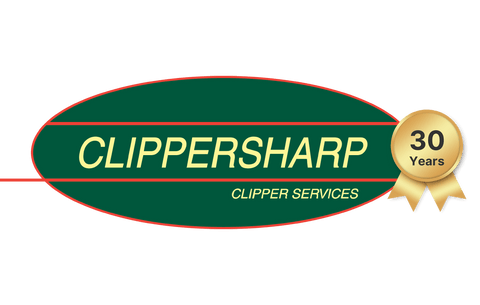Staying safe when clipping
Mains electricity and animals are a recipe for disaster if basic safety checks are not made on a regular basis.
Before even starting to clip, check all the equipment and blades are in good order and are working. If in doubt, send them off for servicing and blade sharpening to a clipper specialist. Check any cables and leads that connect to the clipper for damage and add a circuit breaker for added safety if using mains clippers. This will ensure the horse and operator won’t get an electrical shock if the lead does get stepped on.
Electrical equipment needs to be meticulously maintained and safety tested on a regular basis – at least once a year if used regularly throughout the clipping season. When clippers are not in use, store them in a dry area and not outside in a tack room where damp can get in and damage the electrics.
Check the correct tensioning for the clipper that you are using. Most makes of clippers will tension in different ways. If you are not sure, check with the manufacturer or a clipper specialist for further advice. If blades are tensioned too tightly they will get very hot and cause stress to the motor of the clipper, if they are too loose they won’t clip properly and give a chewed affect and hurt the horse.
Make sure you clip in a dry area with a non-slip floor, and ideally rubber matting is perfect when using mains clipper. Always ensure the lead is off the floor and kept over one shoulder. When oiling blades, ensure a proper clipper oil is used, as this is designed to be used on clippers. General lubrication oil is normally too heavy in consistence, for this purpose.
If you are using a mains clipper, with a long lead, ensure the lead is kept over the shoulder and as off the ground and out of the way as possible keeping away from legs and hooves.
Never dip blades that are running in any kind of liquid to cool, this is very dangerous particularly if it is into paraffin, petrol or diesel. This seems to be a tip that has been passed down with no consideration for safety! There are purpose made cooling lotions, for dipping blades into which both cool and disinfect, and this is a good idea, particularly when clipping numerous horses and will prevent cross infection.
We advise wearing a riding hat and sturdy footwear, just in case the animal does get fidgetty or panics. Safety for the handler must always be paramount, and if a horse is proving particularly difficult, or dangerous, it is best to stop or get veterinary help in for sedation purposes.
It is worth taking time to de-sensitive nervous or young horses to the clipper noise. This can be done over a period of time, and best incorporated into time spent when grooming.
